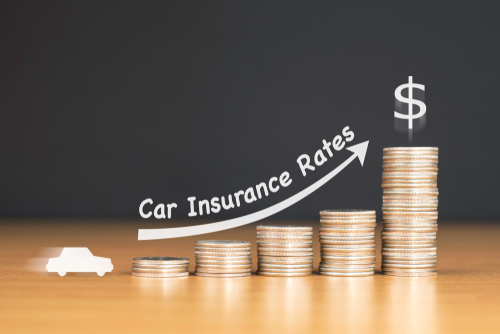
Insurance companies consider various factors when calculating auto insurance rates. For example, your location, age, type of vehicle, annual mileage, and driving record all affect your auto insurance rates. Insurers take these into account when calculating how much you will pay for auto insurance. However, certain factors can increase your rates. In this article, we’ll explain these factors.
What Can Make Your Auto Insurance Rates Go Up?
Traffic Violations: Violating traffic rules are a common reason why your auto insurance rates may increase. Traffic violations are divided into two categories: major violations and minor violations. With minor traffic violations, you will mostly pay a fine but will not need to show up in court as they are generally not criminal. On the other hand, major traffic violations bring a misdemeanor charge at a minimum, and you will need to appear in court.
- Minor traffic violations include speeding, not using turn signals, obstructing traffic, running red lights, failure to yield, etc.
- Major traffic violations include driving under the influence, reckless driving, driving without insurance, vehicular manslaughter, hit and runs, and other offenses.
- Some insurers may offer to waive minor offenses. This is known as minor accident forgiveness and is usually an add-on to an auto insurance policy.
Accidents: If you are involved in an accident in which you are at fault, your insurance rates will go up. If your action or inaction results in an accident and you will be in an at-fault state, then your premiums will increase. An insurance adjuster will help to determine if you were at fault or not based on the evidence from the accident scene. If you were at fault, then your insurer may increase your rates. In many cases, the insurer may drop the extra charges after some years if you do not get involved in another accident.
Comprehensive Claims: Comprehensive auto insurance covers damages that occur as a result of factors that are outside your control, such as theft, water damage, etc. Filing a comprehensive insurance claim may result in a premium increase, but this will depend on your insurance company. This typically occurs if you make multiple claims or if your claims exceed a certain amount.
Criminal Convictions: Criminal convictions such as DUIs will affect your insurance rates. Your insurer is likely to consider you a high-risk driver if you have criminal convictions, especially if they are related to driving.
Carrier Policy: Your auto insurance rates may increase due to factors outside your control, such as inflation. Insurance rates may also increase due to an increase in claims over a certain period, especially if the rates do not cover the losses.
Give Us A Call Today
For more information about finding affordable insurance policies, including auto insurance, contact Remco Insurance Services today. We are here to help you get the coverage you not only need but deserve.



